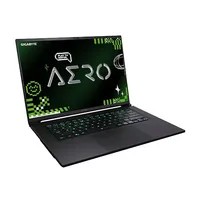Sponsored by Gigabyte
Gaming laptops by GPU: which graphics card should you look for in a new laptop?
Be informed when upgrading
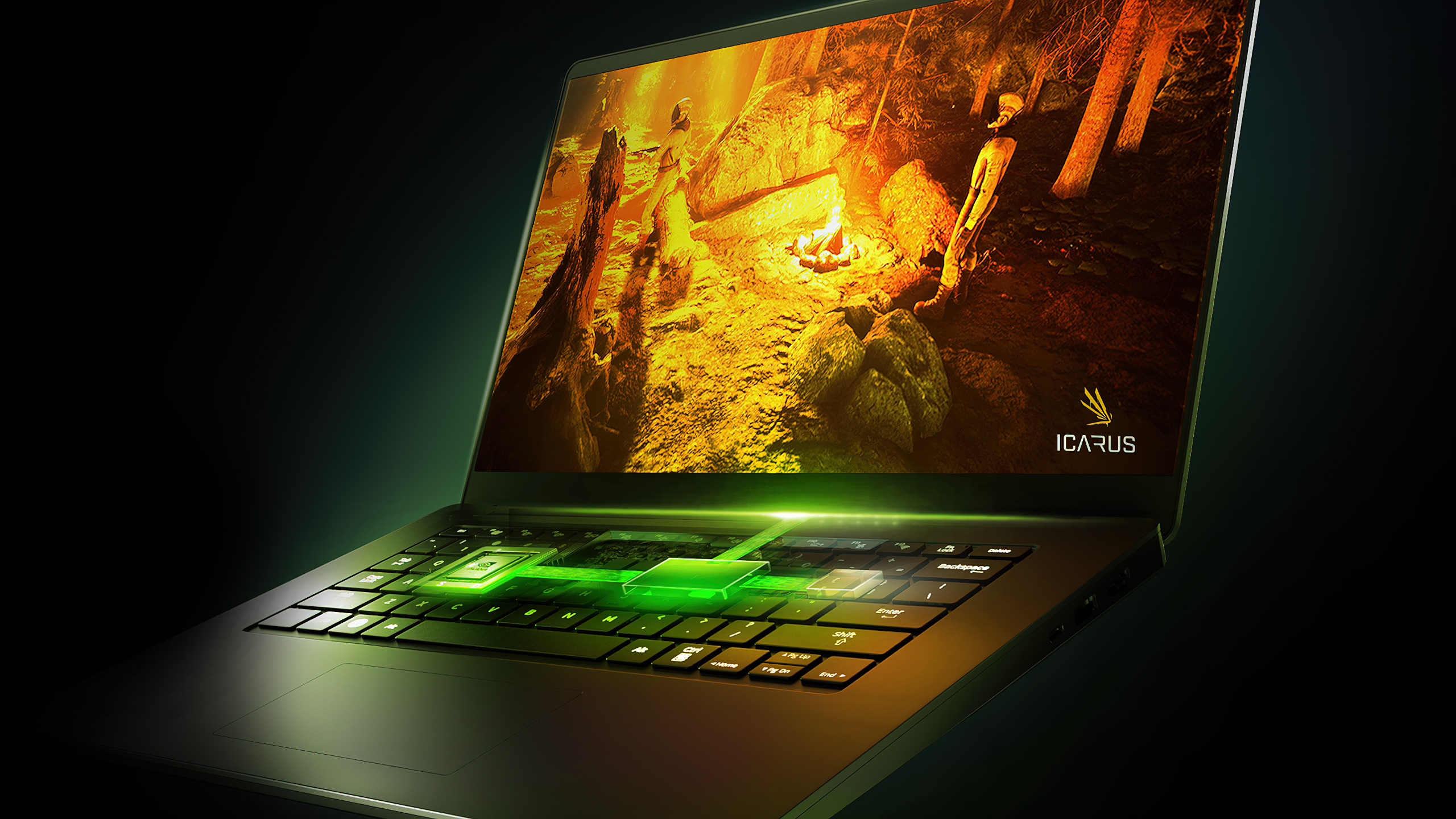
So, you're thinking of buying a new gaming laptop. Perhaps your trusty old machine has finally given up the ghost, or you're looking for a gift for a PC gamer friend or family member. But which one should you get? There's a veritable smorgasbord of options, and it can be hard to know if you're getting enough bang for your buck - especially with dodgy cheap brands flooding Amazon.
Don't worry, though: TechRadar is here to help. When it comes to choosing a gaming laptop, your number one consideration should be the GPU (commonly referred to as the graphics card). But with dozens of different GPUs out there, choosing the right one for your needs and budget can be tricky - especially since laptop GPUs don't align directly with the best graphics cards for desktop PCs, even when they share the same name.
In this article, I'll be breaking down laptop GPUs into three categories - premium, mid-range, and budget - to help you get a better understanding of what to look for when picking a gaming laptop. Note that this guide will specifically be dealing with Nvidia GPUs, because AMD and Intel have practically dropped out of the laptop GPU race at this point to focus more on desktop graphics cards (which is a shame, in my opinion). Ready? Let's dive in.
AERO X16 2WHA3USC64AH: A multipurpose laptop that excels in productivity and competitive gaming, the AERO X16 2WH is stunning in its classic space-gray colorway and thin-profile chassis, measuring just 16.75 mm. This laptop weighs only 4.18 pounds, but don’t let the small size fool you – under the hood is an AMD Ryzen AI 9 processor and NVIDIA GeForce RTX 5070 GPU, ensuring you’re battle-ready wherever the game takes you. The Aero X16 is also ready to crank up your productivity and gaming experience with four integrated AI tools: GIGABYTE GiMATE, Microsoft Copilot+, AMD Ryzen AI, and NVIDIA RTX AI.
Premium gaming laptop GPUs
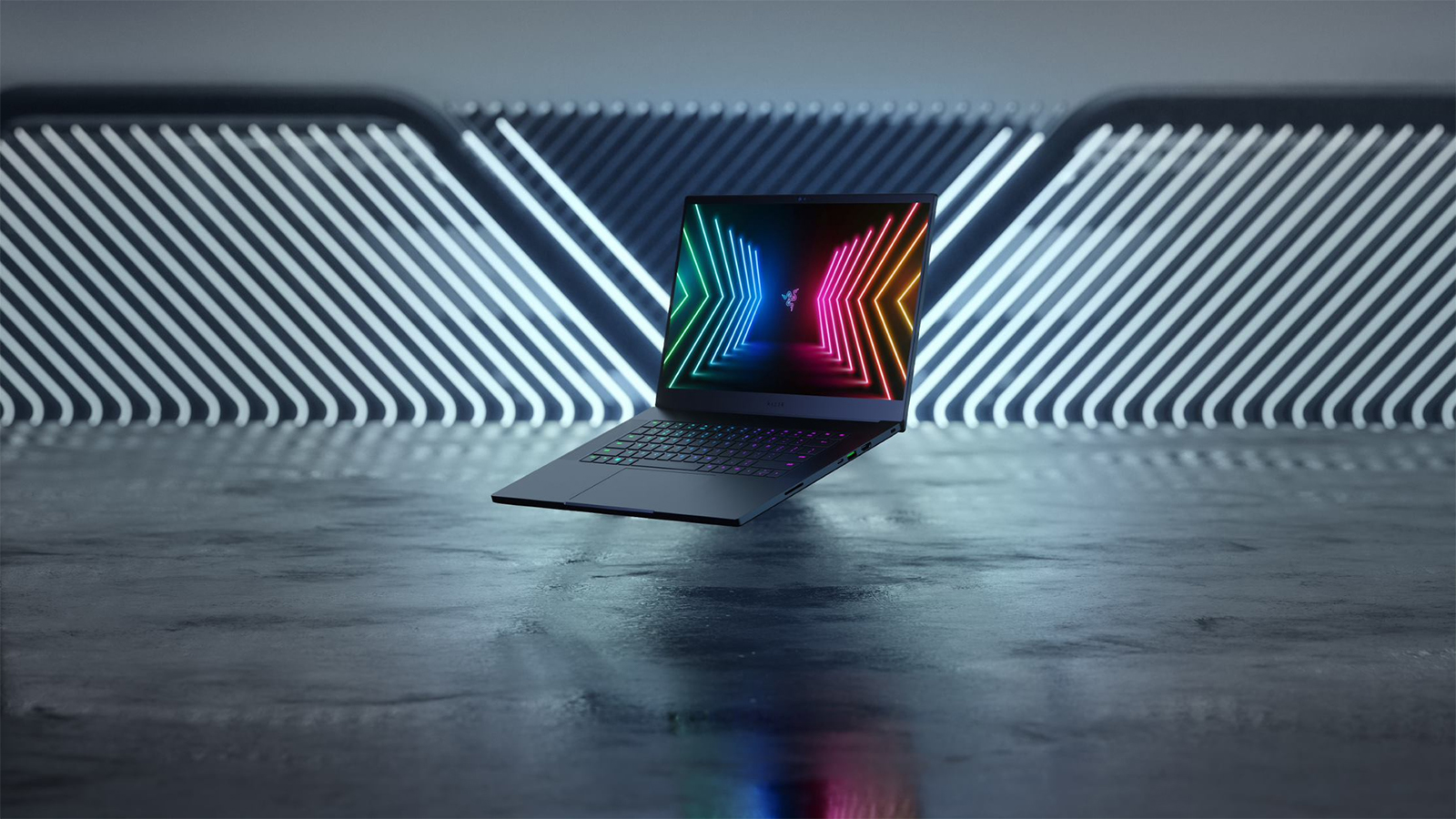
Our top category, the crème de la crème of gaming laptop GPUs, will usually cost you a pretty penny. But these are some of the best gaming laptops money can buy, delivering top-notch performance not just in the latest triple-A games but also in creative and AI workloads - useful if you need a laptop that'll be pulling double duty as a workstation system.
At the pinnacle, we've got the Nvidia RTX 5090 laptop GPU. This is as good as it gets: powerhouse performance that is quite frankly going to be overkill for most people. These laptops are expensive, and usually also quite bulky and heavy. If you're a serious PC gamer and content creator, you may want to consider an RTX 5090 laptop, but bear in mind that it'll cost you a lot of dough - think in the $3,500 / £3,000 / AU$7,000 range at retail price.
A more reasonable proposition for gamers looking for a high-end device would be the RTX 5080 and RTX 5070 Ti. These devices are still capable of providing a premium gaming experience at 1440p or even 4K, and while they're still not cheap, they'll provide better value for money on average than a 5090 system.
You could also consider a slightly older GPU; the RTX 4090 and 4080 are still strong choices for a gaming laptop, with the only significant downside being that you don't get access to Nvidia’s fancy new Multi Frame Generation (MFG) feature, which is exclusive to the RTX 5000 series - but if I'm being honest, MFG is less consistent in terms of visual fidelity than the more established upscaling tools like DLSS when it comes to ways to boost your framerate.
Mid-range gaming laptop GPUs
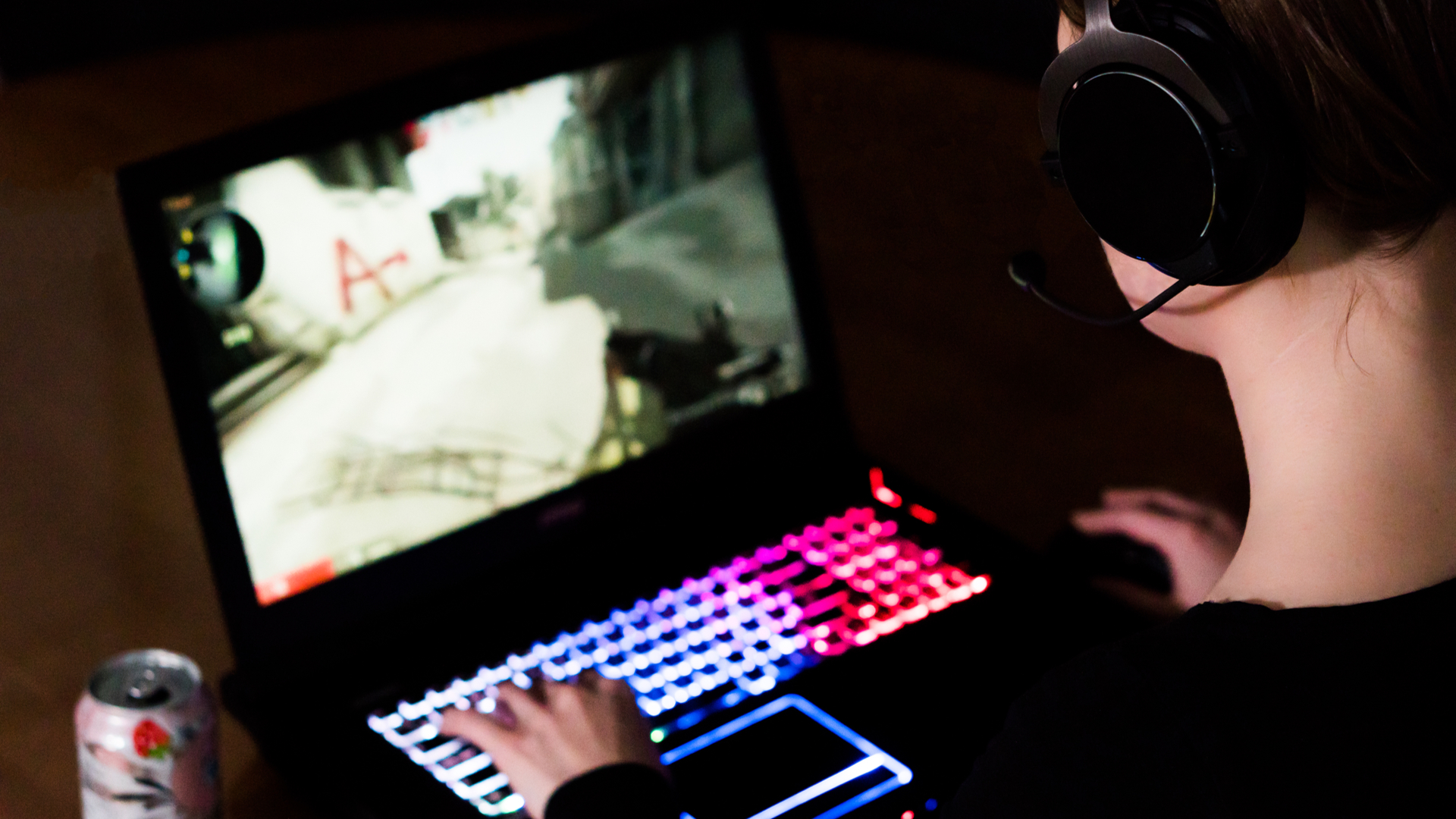
The top end of the mid-range space would be the Nvidia RTX 5070, which will provide strong gaming and creative performance at 1440p and potentially even 4K if you're willing to fire up DLSS upscaling - though most laptops sporting this laptop won't offer a 4K display. One step down is the RTX 5060, which is arguably one of the best desktop graphics cards out there in terms of value for money - but of course, inside a laptop, the price will be determined by more than just the GPU.
For an RTX 5070 or 5060 gaming laptop, prices will vary a great deal depending on the overall spec of the device; you could be looking at as much as $2,200 / £2,000 / AU$3,500, but be careful here, as you don't want to spend an unnecessary amount to get extra features you don't really need. A 1440p display is completely fine for one of these laptops, for example - there's really no need to spring to 4K.
In terms of last-gen GPUs, there are still plenty of mid-range gaming laptops that can be readily found at online and physical retailers. The RTX 4070 and 4060 (or even an older card like the 3080) are good options that are worth considering if you're trying to save money, since laptops with these GPUs can frequently be found on sale these days - especially during retail events like Black Friday!
Budget gaming laptop GPUs
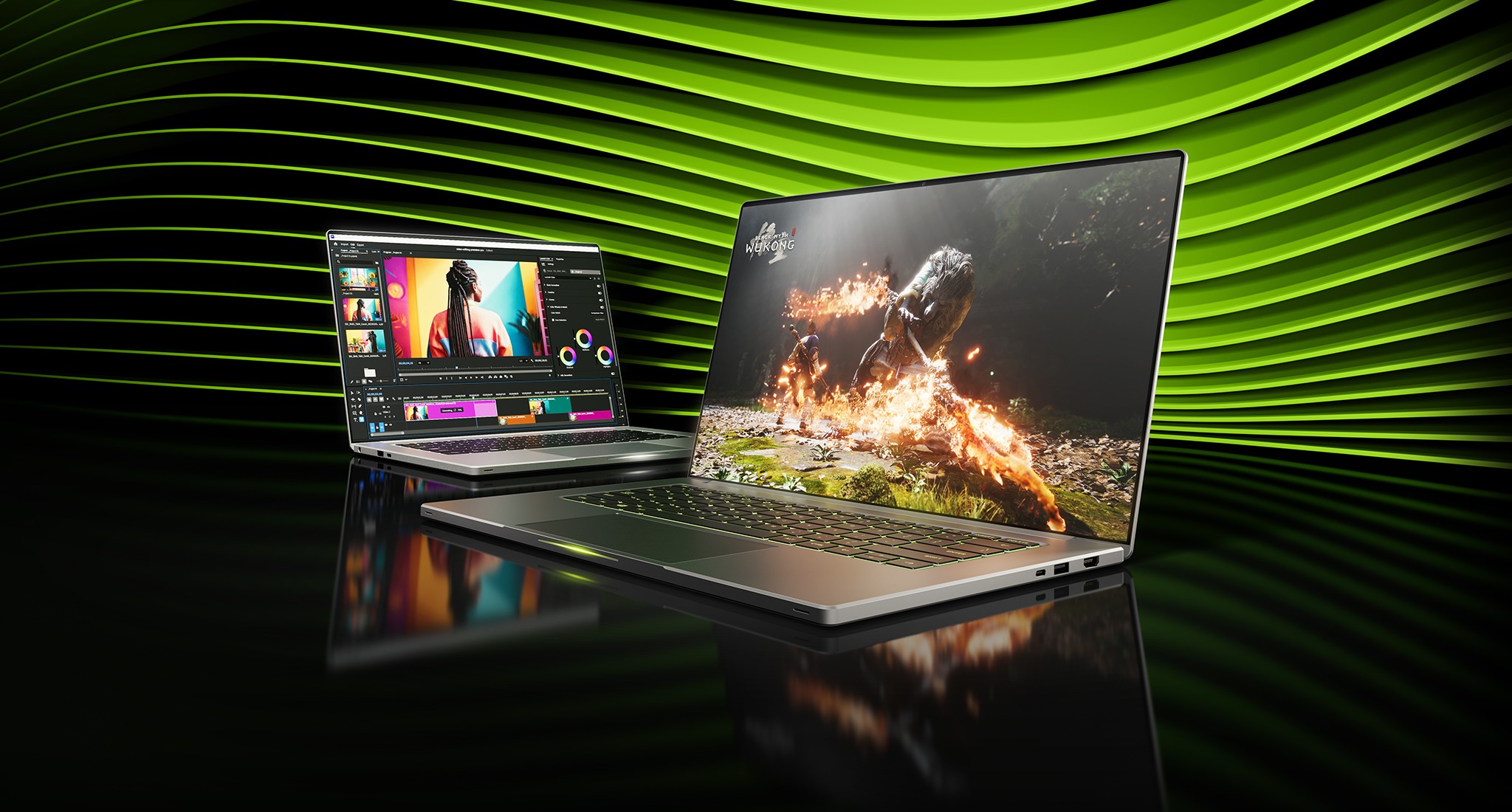
Once you hit this price point, you're immediately going to have more options. We're not strictly confined to Nvidia GPUs at this point; AMD Radeon and Intel Arc laptop GPUs might not be anywhere near as widely available as Nvidia’s market-dominant GPUs, but they can be a viable option for anyone looking for a cheaper device that still has some gaming chops. The issue is actually finding one on sale, though, so as I mentioned earlier, I'll be discussing Nvidia GPUs here.
In terms of the mainstream cards you'll see at most retailers, though, the best budget option is the RTX 5050 - Nvidia is still the most widespread laptop GPU manufacturer. The 5050 is arguably the choice for a budget gaming laptop right now; definitely stick to 16GB of RAM and a 1080p display here, anything more than that is a waste of money. If you're lucky, you might be able to pick one of these up for around $1,200 / £1,000 / AU$2,000 at full price.
There are also older options that are still perfectly capable of 1080p gaming for shoppers with tight budgets, though. RTX 4060 and 4050 laptops are viable options you should be able to find for a three-figure price (in dollars and pounds, anyway - sorry, Aussies), and there's even been a recent resurgence in laptops with RTX 3050 GPUs.
Now, at two generations old, it should be noted that the 3050 naturally won't be as future-proof as an RTX 5000 laptop, but it's good to see that Nvidia and its manufacturing partners are keeping this older GPU alive as an option for budget-friendly laptops. If the laptop you're looking for will be going to a younger user or someone who only plays casual, non-demanding games (think The Sims, Fortnite, and Stardew Valley), an RTX 3050 model can be a smart choice.
Gaming laptop GPUs: closing thoughts
That's about all there is to it. Hopefully, you're now feeling a little more informed about gaming laptop GPUs! Of course, you'll need to remember to check the laptop specs beyond the GPU; as a general rule of thumb, you'll want to get a system with 16GB of RAM minimum, and at least 512GB of SSD storage. I also always recommend doing a Google search for the CPU to find out how old it is; if it's more than two years older than the GPU, steer clear.
Screen resolution is naturally also important, but you don't need to go overboard here; gaming laptops have much smaller displays than the kind of big-screen 4K offerings you can find among the best monitors for desktop PCs, so it's often safe to stick to a 1440p screen unless you're already planning to drop a lot of cash on your laptop. In fact, anything closer to the budget end of the price scale likely won't perform great in modern AAA games at resolutions above 1080p, so it's not worth spending extra money on a laptop display you won't be able to fully utilize.
There's also always the option of buying a laptop that doesn't have a dedicated GPU at all, instead relying on the CPU's built-in graphics. This is referred to as integrated graphics or an iGPU, and there's no denying that integrated graphics have improved a lot in recent years.
However, I really wouldn't recommend this unless you specifically need a super-lightweight device (since a discrete GPU and its cooling system adds a lot of weight to a laptop) and don't plan on playing anything too demanding. If you want a work laptop that can squeeze in a few rounds of Marvel Rivals, then an iGPU will probably be fine - but serious gamers should definitely look for that Nvidia badge.
Sign up for breaking news, reviews, opinion, top tech deals, and more.

Christian is TechRadar’s UK-based Computing Editor. He came to us from Maximum PC magazine, where he fell in love with computer hardware and building PCs. He was a regular fixture amongst our freelance review team before making the jump to TechRadar, and can usually be found drooling over the latest high-end graphics card or gaming laptop before looking at his bank account balance and crying.
Christian is a keen campaigner for LGBTQ+ rights and the owner of a charming rescue dog named Lucy, having adopted her after he beat cancer in 2021. She keeps him fit and healthy through a combination of face-licking and long walks, and only occasionally barks at him to demand treats when he’s trying to work from home.
